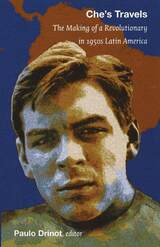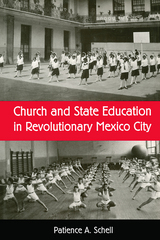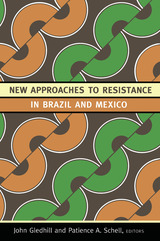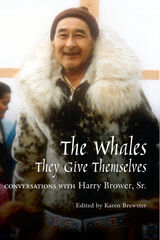3 books about Schell, Patience A.

Che's Travels
The Making of a Revolutionary in 1950s Latin America
Paulo Drinot, ed.
Duke University Press, 2010
Ernesto “Che” Guevara twice traveled across Latin America in the early 1950s. Based on his accounts of those trips (published in English as The Motorcycle Diaries and Back on the Road), as well as other historical sources, Che’s Travels follows Guevara, country by country, from his native Argentina through Chile, Peru, Colombia, and Venezuela, and then from Argentina through Bolivia, Peru, Guatemala, and Mexico. Each essay is focused on a single country and written by an expert in its history. Taken together, the essays shed new light on Che’s formative years by analyzing the distinctive societies, histories, politics, and cultures he encountered on these two trips, the ways they affected him, and the ways he represented them in his travelogues. In addition to offering new insights into Guevara, the essays provide a fresh perspective on Latin America’s experience of the Cold War and the interplay of nationalism and anti-imperialism in the crucial but relatively understudied 1950s. Assessing Che’s legacies in the countries he visited during the two journeys, the contributors examine how he is remembered or memorialized; how he is invoked for political, cultural, and religious purposes; and how perceptions of him affect ideas about the revolutions and counterrevolutions fought in Latin America from the 1960s through the 1980s.
Contributors
Malcolm Deas
Paulo Drinot
Eduardo Elena
Judith Ewell
Cindy Forster
Patience A. Schell
Eric Zolov
Ann Zulawski
[more]

Church and State Education in Revolutionary Mexico City
Patience A. Schell
University of Arizona Press, 2003
Revolution in Mexico sought to subordinate church to state and push the church out of public life. Nevertheless, state and church shared a concern for the nation's social problems. Until the breakdown of church-state cooperation in 1926, they ignored the political chasm separating them to address those problems through education in order to instill in citizens a new sense of patriotism, a strong work ethic, and adherence to traditional gender roles. This book examines primary, vocational, private, and parochial education in Mexico City from 1917 to 1926 and shows how it was affected by the relations between the revolutionary state and the Roman Catholic Church. One of the first books to look at revolutionary programs in the capital immediately after the Revolution, it shows how government social reform and Catholic social action overlapped and identifies clear points of convergence while also offering vivid descriptions of everyday life in revolutionary Mexico City. Comparing curricula and practice in Catholic and public schools, Patience Schell describes scandals and successes in classrooms throughout Mexico City. Her re-creation of day-to-day schooling shows how teachers, inspectors, volunteers, and priests, even while facing material shortages, struggled to educate Mexico City's residents out of a conviction that they were transforming society. She also reviews broader federal and Catholic social action programs such as films, unionization projects, and libraries that sought to instill a new morality in the working class. Finally, she situates education among larger issues that eventually divided church and state and examines the impact of the restrictions placed on Catholic education in 1926. Schell sheds new light on the common cause between revolutionary state education and Catholic tradition and provides new insight into the wider issue of the relationship between the revolutionary state and civil society. As the presidency of Vicente Fox revives questions of church involvement in Mexican public life, her study provides a solid foundation for understanding the tenor and tenure of that age-old relationship.
[more]

New Approaches to Resistance in Brazil and Mexico
John Gledhill and Patience A. Schell, eds.
Duke University Press, 2012
Bringing together historically and ethnographically grounded studies of the social and political life of Brazil and Mexico, this collection of essays revitalizes resistance as an area of study. Resistance studies boomed in the 1980s and then was subject to a wave of critique in the 1990s. Covering the colonial period to the present day, the case studies in this collection suggest that, even if much of that critique was justified, resistance remains a useful analytic rubric. The collection has three sections, each of which is preceded by a short introduction. A section focused on religious institutions and movements is bracketed by one featuring historical studies from the sixteenth through the nineteenth centuries and another gathering more contemporary, ethnographically-based studies. Introducing the collection, the anthropologist John Gledhill traces the debates about resistance studies. In the conclusion, Alan Knight provides a historian’s perspective on the broader implications of the contributors’ findings.
Contributors. Helga Baitenmann, Marcus J. M. de Carvalho, Guillermo de la Peña, John Gledhill, Matthew Gutmann, Maria Gabriela Hita, Alan Knight, Ilka Boaventura Leite, Jean Meyer, John Monteiro, Luis Nicolau Parés, Patricia R. Pessar, Patience A. Schell, Robert Slenes, Juan Pedro Viqueira, Margarita Zárate
Contributors. Helga Baitenmann, Marcus J. M. de Carvalho, Guillermo de la Peña, John Gledhill, Matthew Gutmann, Maria Gabriela Hita, Alan Knight, Ilka Boaventura Leite, Jean Meyer, John Monteiro, Luis Nicolau Parés, Patricia R. Pessar, Patience A. Schell, Robert Slenes, Juan Pedro Viqueira, Margarita Zárate
[more]
READERS
Browse our collection.
PUBLISHERS
See BiblioVault's publisher services.
STUDENT SERVICES
Files for college accessibility offices.
UChicago Accessibility Resources
home | accessibility | search | about | contact us
BiblioVault ® 2001 - 2025
The University of Chicago Press









